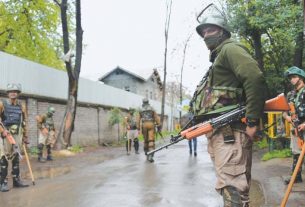Breast milk from coronavirus infected mothers may contain antibodies to the novel coronavirus that could be protective for babies, a recent study suggests.
The study, which has not yet been peer reviewed, was designed on the hypothesis that there is some proportion of antibodies in human milk that comes from blood — making it likely that breast milk contains antibodies to treat Covid-19.
For the purpose of the study, 15 milk samples were obtained and tested for reactivity from donors previously infected with the novel coronavirus while 10 negative control samples were also part of the research.
“The data [findings from the study] indicates that there is a strong SARS-CoV-2 immune response in human milk after infection in the majority of individuals and that a comprehensive study of this response is highly warranted,” the study concludes.
“Nursing mothers who are infected with the novel coronavirus should continue to breastfeed throughout their Covid-19 illness and beyond,” Dr Rebecca Powell of The Icahn School of Medicine at Mount Sinai in New York, who led the study, told Reuters.
“Because other researchers have shown that transmission does not occur via milk and we have determined that antibodies are almost certainly there, and may protect their babies from infection,” she added.
“We hope that the antibody levels [in breast milk] are high and have protective function. This is important for breastfed babies, obviously.
“Beyond that, if there are high levels of protective antibodies, those antibodies could be purified and used in treatments in severe cases of Covid-19,” Powell had told Forbes last month before conducting the study.
Dr Powell, however, recommended against purchasing and consuming breast milk off the internet, adding that “any bodily fluid can carry other illnesses”.
“I’m talking about purifying specific antibodies from the milk and using therapeutically,” she clarified.
According to the Forbes report, this type of treatment is similar to current studies on the antibodies of blood plasma.


